The S in STEM

Lets Do some Observations!!!
Post the answers to the questions below in canvas assignment called observing squirrels.
What are 3 Observations you made while watching the video?
Assignment
More Observation Videos



Section 1
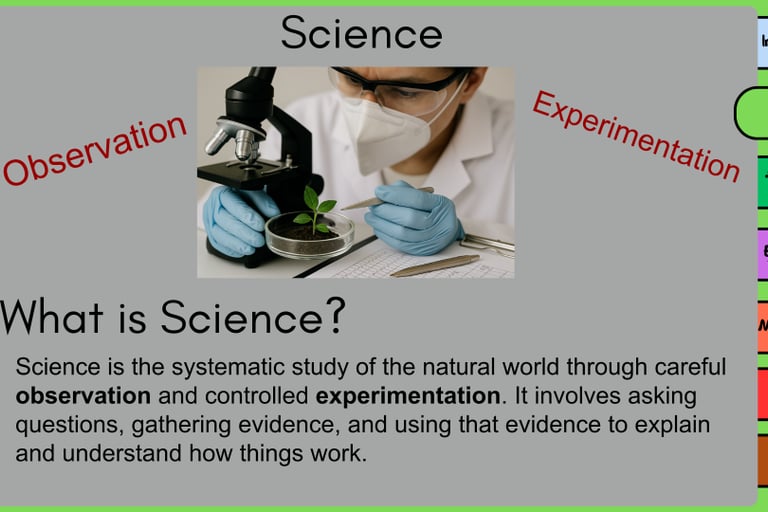

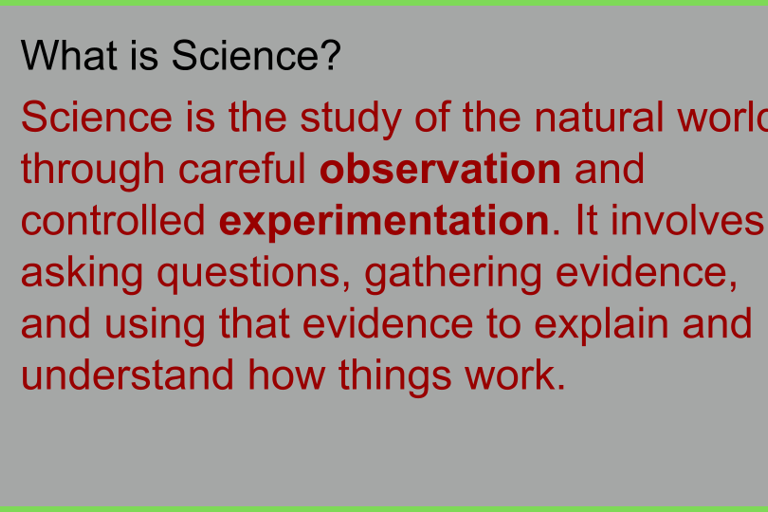

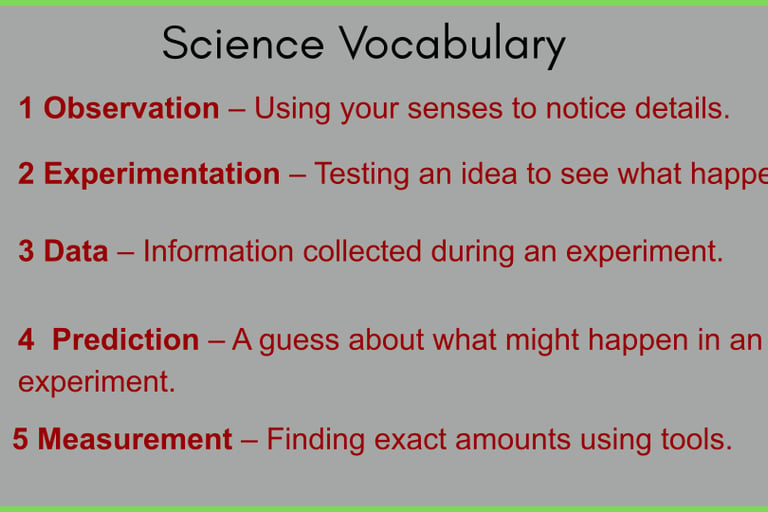

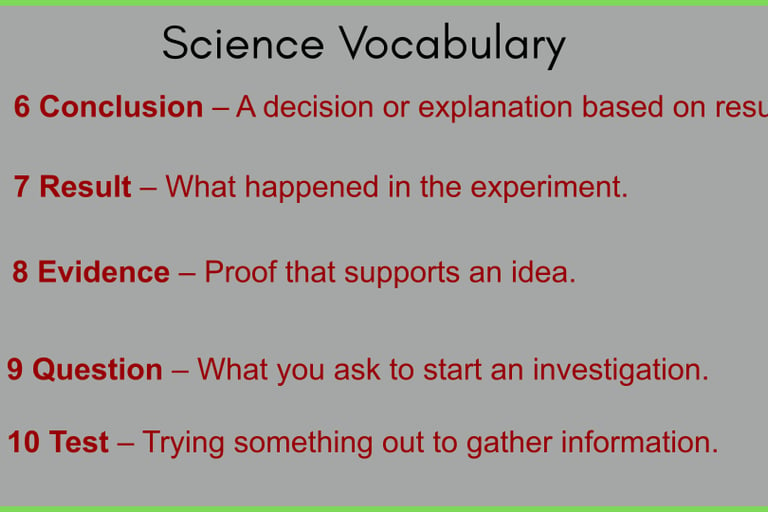

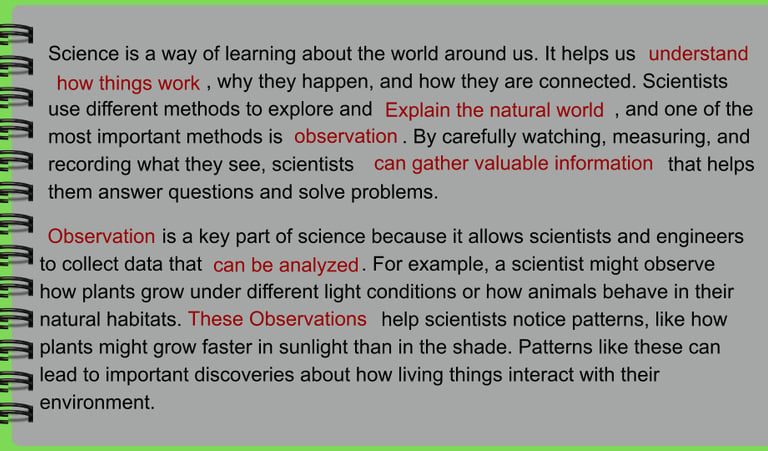

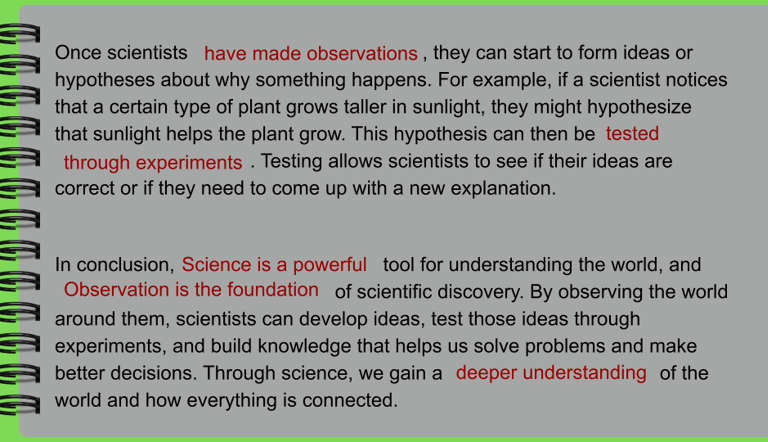




Section 2
Class presentation on "Science in STEM"
1. Biologist
What They Do: Study living organisms, ecosystems, and biodiversity.
Average Salary: $65,000–$85,000/year.
Education: Bachelor’s degree (4 years) for entry-level; master’s or Ph.D. for advanced roles.
2. Chemist
What They Do: Analyze substances, develop new materials, and test chemical compounds.
Average Salary: $60,000–$80,000/year.
Education: Bachelor’s degree (4 years); advanced roles may require a master’s or Ph.D.
3. Environmental Scientist
What They Do: Analyze environmental problems, develop solutions, and advise on policy.
Average Salary: $50,000–$75,000/year.
Education: Bachelor’s degree (4 years).
4. Forensic Scientist
What They Do: Analyze crime scene evidence to support legal investigations.
Average Salary: $50,000–$70,000/year.
Education: Bachelor’s degree (4 years).
5. Astronomer
What They Do: Study celestial objects and phenomena.
Average Salary: $100,000–$120,000/year.
Education: Ph.D. (8–10 years total).
6. Microbiologist
What They Do: Study microorganisms such as bacteria, viruses, and fungi.
Average Salary: $55,000–$75,000/year.
Education: Bachelor’s degree (4 years); master’s or Ph.D. for advanced research.
7. Medical Scientist
What They Do: Research human diseases and develop treatments.
Average Salary: $80,000–$100,000/year.
Education: Ph.D. or medical degree (8+ years).
8. Data Scientist
What They Do: Analyze and interpret large datasets to provide insights and predictions.
Average Salary: $100,000–$140,000/year.
Education: Bachelor’s or master’s degree (4–6 years).
9. Physicist
What They Do: Study matter, energy, and the fundamental forces of nature.
Average Salary: $100,000–$140,000/year.
Education: Ph.D. (8–10 years total).
10. Geologist
What They Do: Study Earth's structure, history, and processes like earthquakes and volcanoes.
Average Salary: $60,000–$90,000åyear.
Education: Bachelor’s degree (4 years); advanced roles may require a master’s degree.
11. Marine Biologist
What They Do: Study marine ecosystems, organisms, and environmental impacts.
Average Salary: $50,000–$80,000/year.
Education: Bachelor’s degree (4 years); master’s for advanced positions.
12. Geneticist
What They Do: Study genes, heredity, and genetic disorders.
Average Salary: $80,000–$120,000/year.
Education: Ph.D. or medical degree (8+ years).
13. Pharmacist
What They Do: Dispense medications, counsel patients, and ensure safe drug use.
Average Salary: $120,000–$130,000/year.
Education: Doctor of Pharmacy (Pharm.D.) degree (6–8 years).
14. Ecologist
What They Do: Study ecosystems and relationships between organisms and their environments.
Average Salary: $50,000–$75,000/year.
Education: Bachelor’s degree (4 years).
15. Meteorologist
What They Do: Analyze weather patterns and predict climate trends.
Average Salary: $60,000–$100,000/year.
Education: Bachelor’s degree (4 years).
16. Toxicologist
What They Do: Study the effects of chemicals on living organisms and the environment.
Average Salary: $60,000–$90,000/year.
Education: Bachelor’s degree (4 years); master’s or Ph.D. for advanced roles.
17. Biomedical Engineer
What They Do: Design and develop medical devices and equipment.
Average Salary: $70,000–$110,000/year.
Education: Bachelor’s degree (4 years).
18. Zoologist
What They Do: Study animal behavior, habitats, and conservation.
Average Salary: $50,000–$75,000/year.
Education: Bachelor’s degree (4 years); master’s for specialized research.
19. Food Scientist
What They Do: Analyze food quality and develop new food products.
Average Salary: $50,000–$80,000/year.
Education: Bachelor’s degree (4 years).
20. Aerospace Engineer
What They Do: Design and develop aircraft, spacecraft, and related technology.
Average Salary: $100,000–$120,000/year.
Education: Bachelor’s degree (4 years); master’s for advanced roles.
Be prepared to talk as a class what you found out about your interests
Investigate 3 Science careers to find out,
What the career title is,
What do they do on a daily basis,
How much money do they make a year and,
How much college education do they need.

Section 3
The Lego Hotel and Mecabricks
2.Use your pattern to build in Mecabricks.com
1. Create your blueprint pattern
Instructions
Use the Picture and create instructions on how to build the EXACT SAME lego structure. (make sure you match the colors with the size of brick)
You are going to use the Instructions that you create to build this model in 3d, so do not loose your instructions.
If you are in class, and you would like to see the Model in person please ask.
Observation is an important skill because it allows us to notice details, analyze situations, and understand the world around us more deeply. By sharpening our ability to observe, we can improve our problem-solving skills, creativity, and awareness of our surroundings. Today, we will practice and enhance our observation skills through this engaging activity that challenges us to pay close attention and think critically.
Mr Kendells Lego Hotel Solution











Section 4
Observation and Data Collection with Race Cars
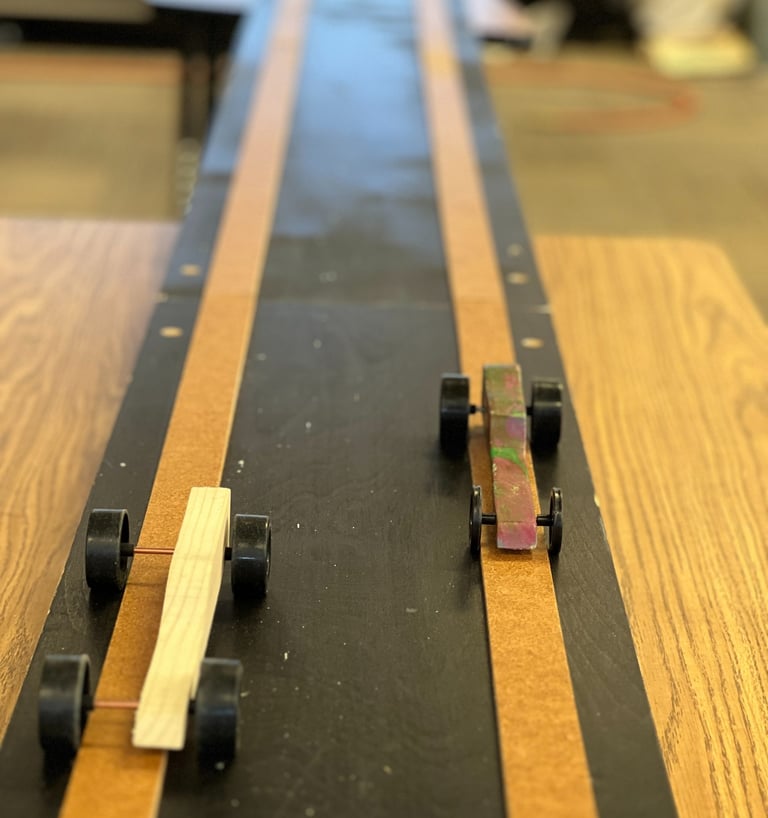



While in class we will use the sheet below and we will observe the race car while taking notes. Remember to keeps these notes until the end of the semester. We may build similar Rocket cars in the wood shop and race them against other STEM students to see who can build the fastest car. These observations will help you design the fastest Rocket car we can make!

